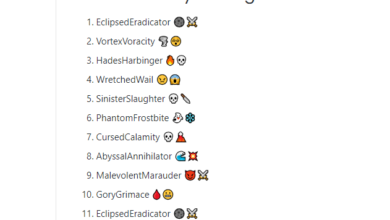Essential Features to Look for in a Keyword Rank Tracker Tool

A keyword rank tracker is a tool that helps you monitor keywords and their positions. This way, you can see whether your SEO strategies are working. The first five search engine results pages get the lion’s share of clicks, so SEO specialists strive to rank among them. That’s why having an accurate and reliable keyword ranking tracker is essential.
Keyword Research
A vital component of any SEO strategy is identifying the right keywords to target. This is where a keyword rank tracker comes in handy. This is why keyword research is essential — it allows you to understand search volume, identify growth opportunities, and see how your competitors rank for those keywords. The best keyword tracker tools will provide you with a wealth of data in one place. This includes a keyword difficulty rating to help you determine how hard it will be for you to rank for a particular keyword and historical rank trends on your competitor’s website to give you an idea of what is working and where they have gained or lost rank over time. Skip the pesky PDFs and clunky dashboards and get your keyword rank reports sent directly to you (and your clients) in an email! Learn how this simple change can improve your reporting and help you reach your marketing goals.
SERP Analysis
SERP analysis is a powerful tool that allows you to gain insight into how search engines rank pages and why specific strategies seem to boost or drop rankings. It’s also a way to identify SEO opportunities like leveraging a featured snippet, using the correct image tags, or even formatting particular keywords into questions (which have been proven to increase organic traffic). Knowing what your competitors are doing allows you to identify gaps where you can improve your search visibility. A great feature to look for in a keyword tracker is the ability to see how search engine results have changed over time. Monitor keyword rankings on desktop, mobile, and tablet with daily, weekly, and monthly views. You can view historical rank data on a graph and annotate significant changes. Best of all, reports are delivered right to your team and clients in the body of an email – no need for 3rd party dashboard portals!
Are you a passionate bike lover looking to enhance your Instagram bio? Check out our latest blog post for the ultimate ‘Bike Lover Bio for Instagram‘ guide.
Backlink Analysis
Backlinks remain among the most influential ranking factors. Industry studies and Google support the idea that pages with stronger links are more likely to rank higher than their weaker counterparts. Marketers conduct backlink analysis to make the most of a keyword to understand its influence. This data-driven process delivers pragmatic and insightful decision-making. The keyword’s visibility in SERPs is a vital component of this process. SERP analysis keeps historical records of competitors’ positions for any given keywords and allows you to compare the visibility of your website with those of the competition.
Keyword Tracking
Keyword tracking is an integral component of SEO. It helps marketers determine how visible their content is for relevant search queries and establish trust with potential customers by ranking well for specific keywords. Therefore, increased traffic and conversions can result from SEO efforts. A comprehensive rank tracker offers detailed reports on the performance of pages over time to allow marketers to assess whether their SEO efforts are paying off and identify any opportunities for enhancement. Many rank-tracking tools also give marketers data-driven decisions to promote success and growth. An ideal keyword tracker tool should provide search volume metrics so marketers can assess demand for specific terms, helping determine whether their website targets its content to the right audiences and identify opportunities to target higher-performing keywords in their strategy.
Keyword Reporting
Regarding keyword reporting, there are many different ways you can go about it. Traditional keyword ranking tracking offers granular insights into specific keywords, while local rank trackers and rank indexes offer broader perspectives on visibility in localized settings or across extensive keyword sets. A good tool will also allow you to view a summary of all the results that appear for a particular search query and provide links to individual results to see their performance. Some tools may also show related searches and misspellings, which can help identify new opportunities and generate traffic. It’s essential to remember that keyword tracking isn’t just about monitoring the status of a single keyword or phrase; it’s about aligning SEO efforts with the broader goals of customer acquisition and conversion. For example, if you notice that one of your key phrases has suddenly dropped in the rankings, it may be time to revisit your strategy and consider making changes.

